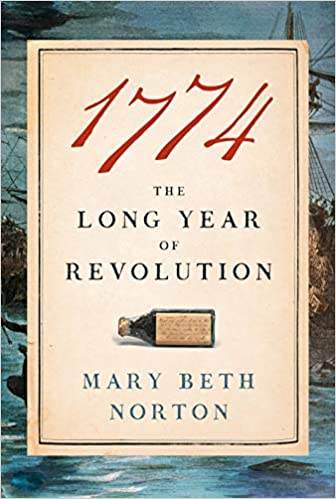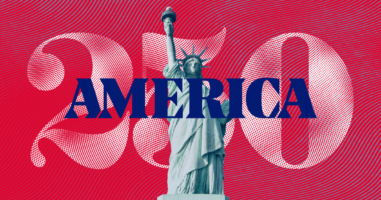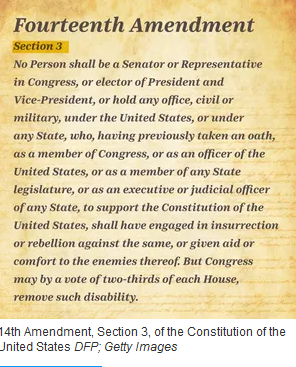
The countdown for the 250th anniversary of the birth of the country continues. The work may have been suspended this past year but the clock did not stop ticking. As we transition from online to in-person meetings, the effort will shift as well. Online meetings probably will continue. They provide a logistically routine and cheap way to reach out on a statewide, regional, and even national level to large numbers of people involved in the 250th. Still there is a place for the in-person meeting especially for local events. And let’s not forget the social aspect of birthday parties either.
As we come out of hibernation, it is time for me at least to return to writing about what is going on in American history aided by the fact that I just turned in my manuscript May 31 for The Exodus: An Egyptian Story (Oxbow). So here are some thoughts about the American Revolution.
State Historical Administrators Meeting (SHAM)
The American Association for State and Local History (AASLH)
A major topic at the SHAM meeting was the preparations for the 250th anniversary in 2026. According to AASLH, one-third of the participants reported that their states have formed a 250th anniversary commission or officially designated another such entity to lead planning. That brings to a total of fourteen states have commissions. Action is being taken in Nebraska, North Dakota, and Texas. It would be interesting to correlate the states involved in the 250th and gaining the right to vote with the states which have changed their voting laws restricting those same rights. The AASLH reports that in Pennsylvania, the America250PA Commission is working with the national commission’s staff to develop a template that all states can use for strategic planning toward 2026 that will be synchronized with America250.
AASLH is developing another example of national guidance for what will be a decentralized, state-focused Semiquincentennial on the subject of historical themes. These themes will provide guidance to state and local history organizations. AASLH staff presented an overview of the themes at SHAM. It seeks feedback from many of the attendees on the draft which it produced with the help of teams of scholars, public historians, and other history practitioners. AASLH will publish the themes as part of a larger 250th planning guide on July 1, 2021, only a few weeks away. The National Endowment for the Humanities assisted in this effort by providing funding.
One final note concerns plans for regional collaborations among the states. Many events are not necessarily confined to current political boundaries. This kind of partnership will continue to be an important agenda item for SHAM for the rest of the year.
DEBATING MARY BETH NORTON, Former President AHA
On February 4, 2021, Fraunces Tavern honored Mary Beth Norton, former president of the American Historical Association, for her book 1774: The Long Year of Revolution. The book covered the sixteen months from the Boston Tea Party to the Battles of Lexington and Concord that changed the course of American history. In her talk, Mary Beth explored the “long year” of the American Revolution, a time when once-loyal colonists began their discordant “discussions,” leading to the acceptance of the inevitability of a war against the British Empire.
During her online talk, I noticed that she used one word repeatedly that I was not expecting. The word was “debate” which I subsequently did mention to her. She constantly referred to the ongoing debates that the Americans were having about the issues of the day. American families, communities, and colonies were divided on what action to take. As we know, there were Loyalists and there were Patriots.
Listening to her talk about these debates gave me an idea for a 250th involving topics. What specifically were these debates about in 1771, 1772, 1773, 1774, and 1775 leading up to the Declaration of Independence in 1776? What were the positions as the colonists approached separation? If you live in a community from colonial times you may be able to determine from church sermons, letters, and broadsides what the people in your community were arguing about.
Perhaps some of the national history organizations could assist in developing guidelines and sources for each year to debate these topics. Now as we are living through our third Civil War, it might be useful to learn what are communities said and why during our first Civil War. It certainly would be a way to connect the American Revolution with the present and to involve high school students as they debate the very issues that consumed their communities 250 years ago.
SIGNS, STATUES, AND MEMORIALS
What are the signs, statues, cemeteries, and memorials related to the American Revolution in your community? Is there a database listing of them? Do they appear on your website and on the tourist websites? People will stop and take selfies at all of the above, but they need guidance to know that they are there.
It would be beneficial if the state maintained/coordinated the creation of such a database if one does not already exist.
As people scour their own communities in the search for such remembrances, it is an excellent opportunity to determine:
1. If any need repair or restoration work
2. If any need to be updated particularly signs as new information may be available and vocabulary has changed
3. If any new ones are needed to include people, places, or events which may have been overlooked in the past.
Potentially such an endeavor could be a big, so communities might want to collaborate in seeking funding to accomplish it in a standardized manner.
SPEAKERS BUREAU AND CALENDAR
One final thought is the benefit of creating a speakers bureau. Again this would work best on a state level. The purpose here would be to be identify potential speakers in a searchable database based on the people, places, events, and topics related to the American Revolution. Why should individual historical societies have to reinvent the wheel? Perhaps at some point there could even be funding so such speakers could speak locally at historical societies/libraries/museums.
There is an advantage to have some speakers present online. Over the past year many of us have probably heard lectures online hosted by an organization far from us geographically. Once we return to in-person meetings, there still will be speakers and topics who can draw from a larger audience than a single historical society can draw. It may be worthwhile to have periodic talks done online then.
Isn’t there a way to have a speaker in-person as well as online? I am not exactly sure what the technology would be? Perhaps just having a laptop set a few feet in front of the standing speaker for online viewing. With slides it would be a little more complicated. Oh well, I am sure smarter minds than mine can figure something out.





As a regular reader of IHARE posts, I am impelled to write upon seeing the term “semiquincentennial” in Peter Feinman’s important encouragement for preparing for our nation’s 250th. I am a town historian (of Suffield), not an academician, but also a “word nut.”
So I call attention to the fact that Suffield celebrated its “quartermillenial” in 1920, having been authorized by the colonial court on October 12, 1670. (It was the Massachusetts General Court, not Connecticut’s, but that’s another story.) I respectfully suggest that “semiquincentennial” be retired and replaced by “quartermillenial,” which, though it’s only one syllable shorter, rolls off the tongue easily as the combination of only two very common words.
On further study, I find that it was the U. S. Congress that came uo with “semiquincentennial,” by establishing the U. S. Semiquincentennial Commision in 2016. I blame that on the many lawyers in Congress, who favor legalese as their written language, seeking, perhaps, to be specific, but becoming inscrutable instead. In Boston, someone came up with “sestercentennial,” for their commission, whose etymology takes bit of research. I still vote for “quartermillenial,” but with no hope for success.
On further research I find that Congress established the “United States Semiquincentennial Commission” in 2016, whose word choice undoubtedly stems from the fact that Congress is composed mostly of lawyers. I have concluded that lawyers write in legalese, a dialect that seeks to be specific, but often becomes inscrutable. So it seems we are stuck with “semiquincentennial.”
I note that Boston will celebrate the “sestercentennial,” whose etymolgy is perhaps questionable, but it does show imagination.
Thanks for being a regular reader and for your reporting on the difficult terms we use for anniversaries. Your points about lawyers and politicians are well taken. I prefer to use “250th” whenever I can. People can understand it fairly easily.
Peter,
Thanks for the publicity for the book, and for the good ideas for public programs about debates in the 1770s.
MBN